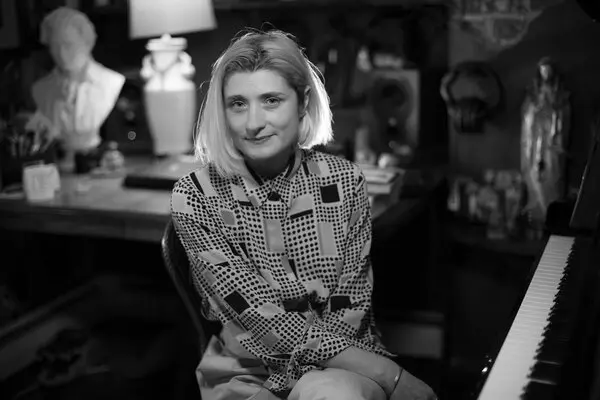
On an oddly soothing morning toward the beginning of March, the arranger Heather Christian advanced toward Ars Nova’s space in Greenwich Village, Manhattan, without precedent for two years. The splendid sun, emanating the glow of a spring day, was to the point of immediately causing her to fail to remember she was freezing.
Once inside, she re-experienced the set for her carefully legendary choral piece “Oratorio for Living Things,” which had two see exhibitions before the pandemic hit, and is back, going through April 17. 사이트순위
“I felt the heaviness of time,” she said during a new discussion over Zoom, considering her re-visitation of the theater. “It was the heaviness of assumption or even the misery of the last time I was there.”
It was just fitting that time felt like Christian’s sidekick, since “Oratorio for Living Things,” in the expressions of its maker, is an investigation of time “in three distinct scales: the quantum scale, the human scale and the grandiose scale.”
To accomplish this, she said she attempted to observe matches between the manners by which particles move, for instance, and the manner by which a fugue is organized, or by looking at inestimable brutality (the Big Bang) and connecting it to human injury.
Then, to make sense of these ideas on an enthusiastic level, she gathered many voice message messages that she had requested from outsiders, welcoming them to namelessly share a memory. (“I left business cards all over the place!” she said with a giggle.)
These tasty memories of shipping packs of food on a sled in Moscow, or knowing that somebody’s mom “will carry my child sibling with her” when she leaves the clinic – make up the subsequent demonstration.
With respect to the melodic structure, performed by a symphony of six, “Oratorio” layers horde sorts – gospel, jazz, Baroque and a scope of pop styles – to make concordance where bedlam could some way or another exist.
“The more we sing these melodies and say these words,” said Onyie Nwachukwu, one of the 12 artists who rejuvenate the piece, “the more I’m very much in the know about the practically incredible nature of people and all that is around us.”
The show’s chief, Lee Sunday Evans, imagined the creation as though set in a Quaker meeting house “where there’s no platform or proscenium thus the music needs to be among us.” Performers move all through the space tenderly cooperating with crowd individuals, practically welcoming them to chime in.
“I realized I needed to do a piece finally,” Christian, 40, made sense of. “Music itself is an investigation of time, a paper on how time moves with a certain goal in mind.” She took a stab at taking apart Carl Orff’s cantata “Carmina Burana,” a festival of natural interests that she depicts as “spaghetti bursting out of the bowl.” It has been a #1 of hers since secondary school as a result of its obscurity – it poses enormous inquiries without offering a response.
A self-depicted social omnivore who finds as much insight in “The Golden Girls” as Bach’s creations, Christian returned to Orff while perusing Carlo Rovelli’s “The Order of Time,” no time like the present in physical science, and rewatched old episodes of Carl Sagan’s “Universe.” Her interest with how they generally made sense of complicated subjects in absorbable ways in the end brought about an aha second: She would do likewise with a melodic piece. Also, that is the point at which she began dealing with “Oratorio.” (The lyrics is devoted to the three Carls.)
Christian forms by ear. “Things come to me at the same time,” she said. Be that as it may, coming up short on a predictable practice for translating her work, she observed an extremely valuable associate in the music chief Ben Moss, who additionally acts in “Oratorio.” Moss came in during an early studio of the piece in 2018 and proposed to assist with the record. At that point, Christian had the skeleton of the work, Moss added the details. He said maybe he were “slithering within her brain and her melodic and graceful creative mind.”
Utilizing voice notes and reminders, Christian passes her goals on to her teammates, making them a fundamental piece of the cycle. “I wish we recorded a portion of the meetings of her making sense of things and her whys and hows on the grounds that it all by itself is creativity,” said Nwachukwu, who likewise showed up in a 2019 studio of Christian’s “Annie Salem: An American Tale” at Vassar’s Powerhouse Theater. She said she wound up moving toward theater according to another point of view: “less prohibitive and organized” than what she was familiar with in show and more customary musicals. “What Heather requested from me was to go to a spot that was fairly awkward,” she reviewed, “where the main thing I needed to do was discard show.”
Rachel Chavkin, the Tony-winning overseer of “Hadestown” who supervised the studio of “Salem,” portrayed Christian’s music as “somewhere close to an animal crying at the moon and the actual moon.” Her music, she proceeded, “isn’t tied in with assisting story, every melody is somewhat more like a profound or enthusiastic occurring than a story beat.”
Chavkin started teaming up with Christian in 2008 when they made a melodic called “Mission Drift,” a show about the downturn and America’s avaricious image of free enterprise. Each time they cooperate, Chavkin said, “I can see my own involvement in the potential outcomes of these structures.” She added: “Heather is creating the wheel for herself.”
토렌트사이트 야동사이트 먹튀검증사이트 웹툰사이트 성인용품 스포츠중계 드라마다시보기 한인사이트 오피사이트